Word-of-mouth marketing is one of the most powerful forms of marketing there is. When a happy customer refers your product or service to their friends and family, it’s a powerful endorsement that can be incredibly persuasive.
By offering your customers a reward for referring their friends, you can tap into the power of word-of-mouth marketing and grow your business exponentially. Individuals are 4 times more inclined to purchase when the recommendation emanates from a trusted friend. That’s why referral programs are so effective for Shopify stores.
In this blog post, we’ll look at 10 examples of successful referral programs for Shopify stores. These programs offer a variety of rewards, from discounts to free products, and they’ve all been proven effective in driving new sales.
So whether you’re just starting out with your Shopify store or you’re looking to take your business to the next level, read on for inspiration and learn how to create a referral program that will help you grow your business.
What are you waiting for? Start your referral program today and see how it can help you grow your business!
What is a referral program?
A referral program is a marketing strategy that encourages existing customers to refer their friends and family to your business. When existing users refer a new customer who makes a purchase, the original customer receives a reward from the company.
Referral programs are a type of word-of-mouth marketing, one of the most effective forms of marketing. When a friend or family member recommends a product or service, it’s more likely to be taken seriously than an advertisement.
There are many different ways to set up a referral program. Some common methods include:
- Referral links: This is the most common type of referral program. Customers are given a unique referral link to share with their friends and family. When someone clicks on the link and makes a purchase, the original customer receives a reward.
- Referral codes: This is similar to a referral link, but customers are given a unique code that they can share with their friends and family. When someone enters the code at checkout, the original customer receives a reward.
- Referral campaigns: This is a more complex type of referral program. Customers are given a set of tasks that they can complete to earn rewards. For example, they might be asked to share their referral link on social media, write a review, or refer a certain number of friends.
No matter how you set up your referral program, it’s important to make sure that the rewards are valuable enough to motivate your customers to refer their friends. You also need to make sure that the program is easy to use. If it’s too complicated, people won’t bother participating.
If you’re looking for a way to grow your business, a referral program is a great option. These programs are effective, and affordable, and can help you reach new customers and grow your business. Customers who come from a friend’s suggestion are worth 16% more to your business than regular customers.
Why is referral program important?
A referral program is an effective way to acquire new customers, increase customer loyalty, and improve brand awareness. Here are some of the reasons why referral programs are important:
- Increased customer acquisition: Referral programs can help you acquire new customers at a fraction of the cost of traditional marketing methods. This is because customers are more likely to trust the recommendations of their friends and family than they are to trust traditional advertising.
- Increased customer loyalty: When customers refer their friends and family, they are essentially vouching for your business. This can help to increase customer loyalty and repeat business.
- Improved brand awareness: Referral programs can help to improve brand awareness by exposing your business to a wider audience. When your customers refer their friends and family, they are sharing your brand with their social networks. This can help to reach new potential customers who may not have heard of your business before.
- Increased sales: Referral programs can lead to increased sales by encouraging customers to make additional purchases. When customers refer their friends and family, they are often eligible for a reward themselves. This can incentivize them to make additional purchases in order to earn the reward.
- Improved customer retention: When customers are rewarded for referring their friends, they’re more likely to stick around and continue shopping with you. This is because they feel like they’re part of a community and that they’re being rewarded for their loyalty.
- Lower marketing costs: Referral programs are a cost-effective way to market your business. You don’t have to spend money on advertising or other marketing channels. Instead, you can rely on your existing customers to spread the word about your business.
- Identify your most loyal customers: Referral programs can help you identify your most loyal customers. These are the customers who are most likely to refer their friends and family, and they’re also the customers who are most likely to be repeat customers.
- Track your customer journey: Referral programs can help you track your customer journey. You can see how customers are finding out about your business, how they’re interacting with your brand, and how they’re ultimately converting into customers.
How to Build a Strong Customer Referral Program
Customer referrals can help you increase sales, improve customer retention, and raise brand awareness. By offering your customers a reward for referring their friends, you can encourage them to spread the word about your business.
Here are some tips on how to build a strong customer referral program:
Step 1: Set your goals
The first step is to set your goals for your referral marketing program. What do you want to achieve with your program? Do you want to increase website traffic, generate leads, or boost sales? Once you know your goals, you can tailor your program accordingly.
For example, if you want to increase website traffic, you might offer a free gift to customers who refer their friends and those friends then visit your website. If you want to generate leads, you might offer a discount on a product or service to customers who refer their friends, and those friends then sign up for your email list. And if you want to boost sales, you might offer a commission on each sale generated by a referral.
Step 2: Choose your incentives
The next step is to choose your incentives. What will you offer customers in exchange for referrals? Some common incentives include discounts, free products or services, or entry into a prize draw. Ensure your incentives are valuable enough to motivate customers to refer their friends.
It is also important to consider the type of customers you have. If you have a younger customer base, they might be more motivated by free products or services. If you have an older customer base, they might be more motivated by discounts or entry into a prize draw.
Step 3: Design your referral program
Now it is time to design your referral program. How will you track referrals and reward customers? You’ll need to create a landing page or form where customers can enter the email addresses of their friends. You’ll also need to set up a system for tracking referrals and issuing rewards.
There are a number of different referral marketing software platforms that can help you with this. Some popular options include ReferralCandy, Referral Rock, and Influitive.
Step 4: Promote your referral program
Once you have designed your referral program, you must promote it to your customers. Let them know about your program through email marketing, social media, and your website. You can also offer referral bonuses to employees who refer new customers.
Here are some tips for promoting your referral program:
- Make sure your referral program is prominently displayed on your website.
- Include a call to action in your email marketing campaigns.
- Share your referral program on social media.
- Offer referral bonuses to employees.
Want to boost your sales and attract new customers? A referral program is the perfect way to do it.
Step 5: Track your results
The final step is to track your results. How well is your referral marketing program performing? Are you achieving your goals?
There are a number of different ways to track the results of your referral marketing program. You can track the number of referrals, the number of new customers, and the amount of revenue generated by referrals.
You can also track the cost per acquisition (CPA) of your referral marketing program. This will tell you how much it costs to acquire a new customer through referrals.
10 Examples of Best Successful Referral Programs
Referral marketing is a powerful way to acquire new customers and grow your business. By encouraging your existing customers to refer their friends and family, you can tap into their existing networks and reach a wider audience.
There are many different ways to set up a referral program. Still, some of the most successful programs offer attractive rewards, make it easy for customers to refer others, and track results effectively.
Here are 10 examples of best successful referral programs from famous and most lovable ecommerce companies:
Harry’s
Referral Name: Referral Program, Friends & Family
Harry’s is a men’s grooming company that offers a referral program that rewards both the referrer and the referee. When you refer a friend to Harry’s, they get a free trial of the product, and you get a $10 credit. The referral program is easy to use, and you can share your referral link on social media, email, or text.
Reward Type: $10 credit
When your friend signs up for Harry’s using your referral link, they will automatically get a free trial of the product. You will then receive a $10 credit in your account.
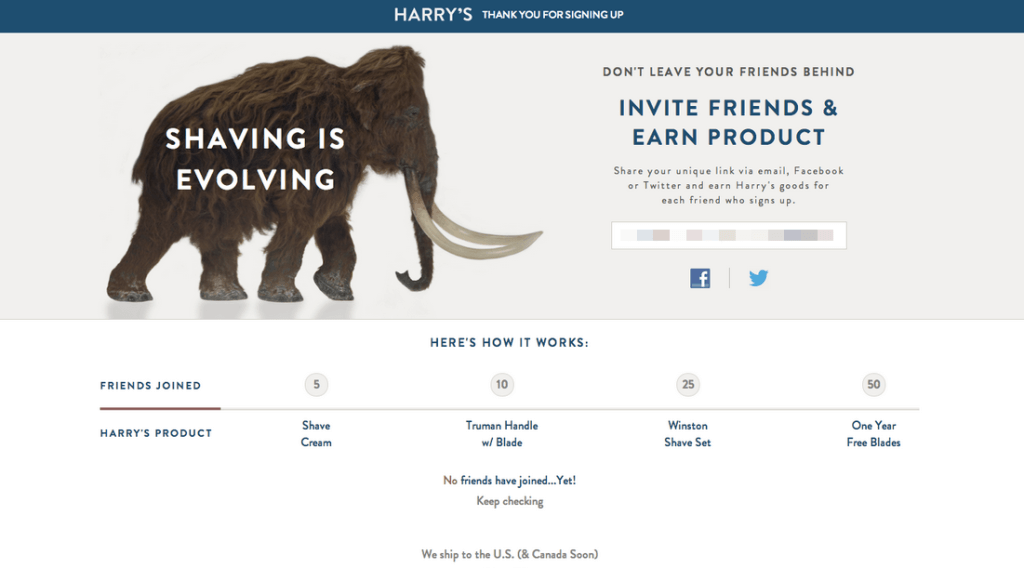
Threadbeast
Referral Name: Referral Perks, Get Paid to Share
Threadbeast is a fashion subscription box company that offers a referral program that rewards both the referrer and the referee. When you refer a friend to Threadbeast, they get a free package, and you get $50. The referral program is easy to use, and you can share your referral link on social media, email, or text.
Reward Type: $50 for the referrer, free package for the referee
When your friend signs up for Threadbeast using your referral link, they will automatically get a free package. You will then receive a $50 credit in your account.
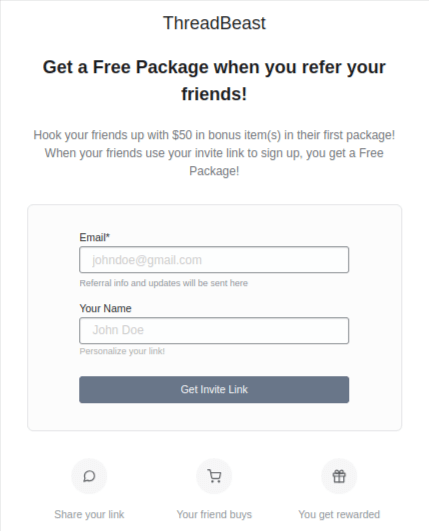
Evernote
Referral Name: Referral Friends Program
Evernote is a note-taking app that offers a referral program that rewards both the referrer and the referee. When you refer a friend to Evernote, they get a free month of premium service, and you get a free month of premium service. The referral program is easy to use, and you can share your referral link on social media, email, or text.
Reward Type: Free month of premium service for both the referrer and the referee
When your friend signs up for Evernote using your referral link, they will automatically get a free month of premium service. You will then receive a free month of premium service in your account.
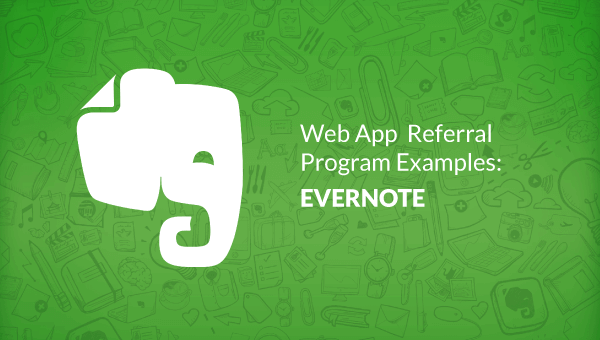
Huckberry
Referral Name: Invite a Friend and Earn
Huckberry is an online retailer that sells outdoor gear, apparel, and home goods. Their referral program rewards the referrer with $20 and the referee with a $10 credit when the referee makes a purchase. The referral program is easy to use, and you can share your referral link on social media, email, or text.
Reward Type: Give $10 and get back $20
When your friend makes a purchase from Huckberry using your referral link, you will receive $20, and the referred friend gets $10
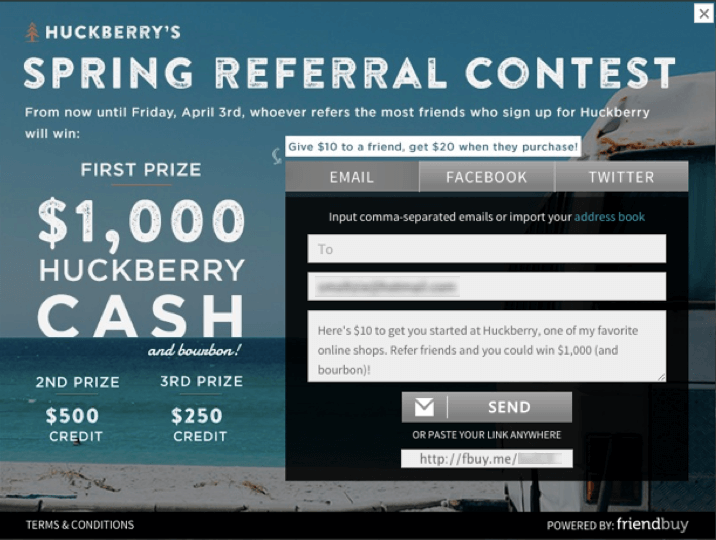
Don’t miss out on the opportunity to grow your business with a referral program.
Koodo Mobile
Referral Name: Koodo Mobile Invite a Friend and Earn
Koodo Mobile is a Canadian wireless carrier that offers a referral program that rewards both the referrer and the referee. When you refer a friend to Koodo Mobile who signs up for a new line of service, you get a $25 credit. The referral program is easy to use, and you can share your referral link on social media, email, or text.
Reward Type: $25 credit for the referrer, $25 credit for the referee
When your friend signs up for Koodo Mobile using your referral link, they will automatically get a $25 credit. You will then receive a $25 credit in your account.
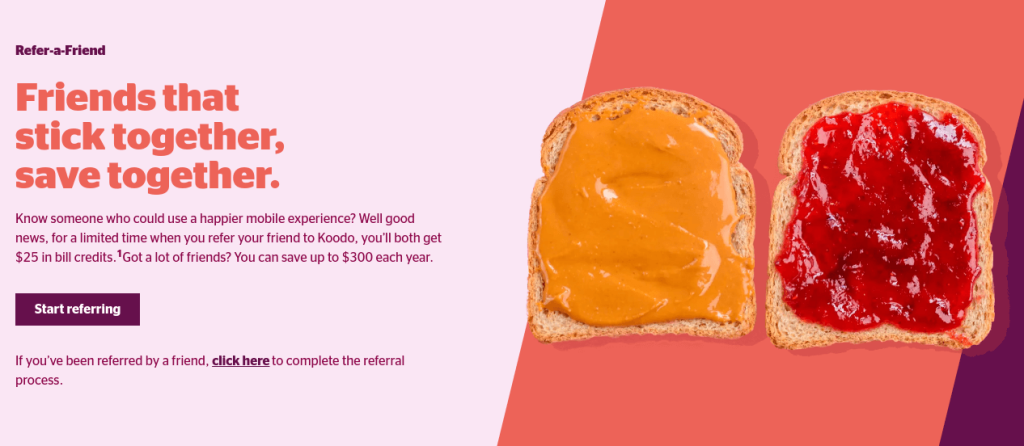
Riff Raff & Co
Referral Name: Referral Program for Friends
Riff Raff & Co is an online clothing retailer that offers a referral program that rewards both the referrer and the referee. When you refer a friend to Riff Raff & Co who makes a purchase, you get a 10% commission on their order. The referral program is easy to use, and you can share your referral link on social media, email, or text.
Reward Type: 10% commission on the referee’s order for the referrer
When your friend makes a purchase from Riff Raff & Co using your referral link, you will automatically get a 10% commission on their order
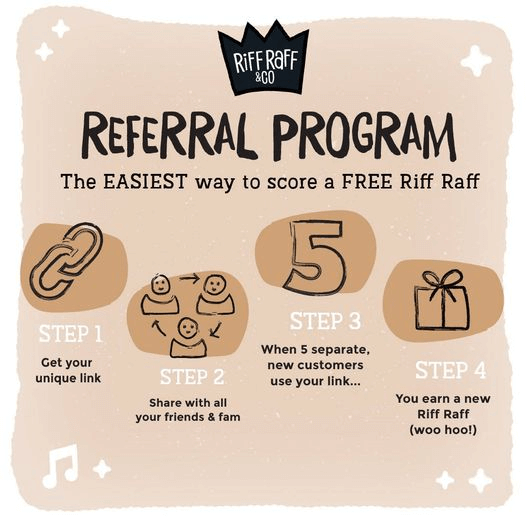
Dropbox
Referral Name: Dropbox Refer a Friend
Dropbox is a file-sharing service that offers a referral program that rewards both the referrer and the referee. When you refer a friend to Dropbox who signs up for a free account, you get 500MB of extra storage space, and your friend gets 500MB of extra storage space. The referral program is easy to use, and you can share your referral link on social media, email, or text.
Reward Type: 500MB of extra storage space for both the referrer and the referee
When your friend signs up for Dropbox using your referral link, they will automatically get 500MB of extra storage space. You will then receive 500MB of extra storage space in your account.
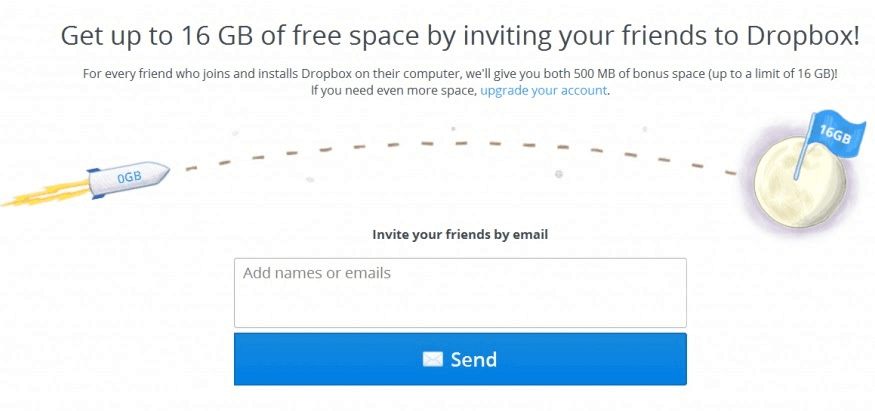
Airbnb
Referral Name: Spread the Love, Get Paid
Airbnb is a homestay rental platform that offers a referral program that rewards both the referrer and the referee. When you refer a friend to Airbnb who books a stay, you get $30, and your friend gets $30. The referral program is easy to use, and you can share your referral link on social media, email, or text.
Reward Type: $30 credit for the referrer, $30 credit for the referee
When your friend books a stay on Airbnb using your referral link, they will automatically get $30 credit. You will then receive $30 credit in your account.
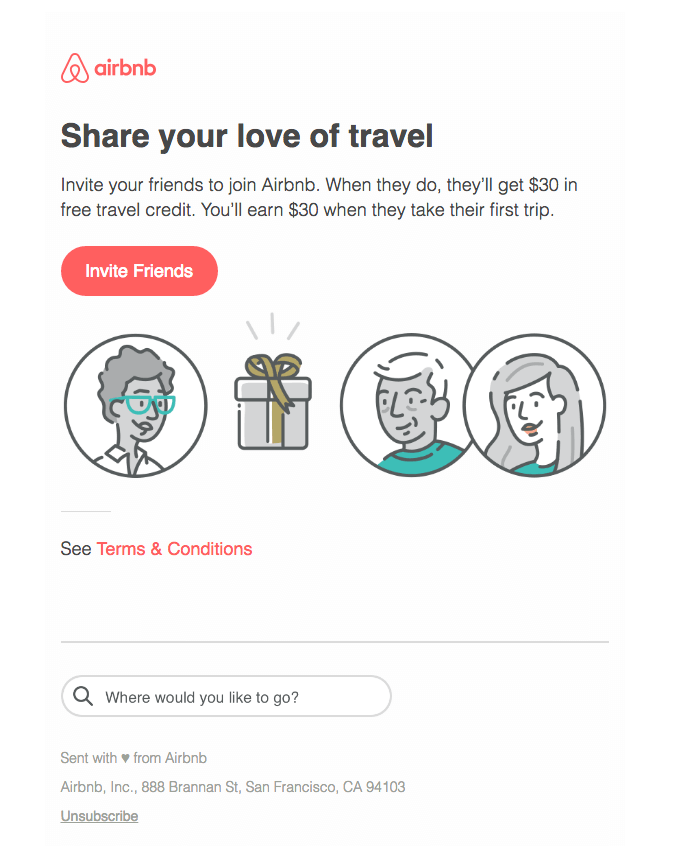
ASOS
Referral Name: Invite a Friend, Win a Prize
ASOS is an online fashion retailer that offers a referral program that rewards both the referrer and the referee. When you refer a friend to ASOS who makes a purchase, you get a £10 credit, and your friend gets a £10 discount. The referral program is easy to use, and you can share your referral link on social media, email, or text.
Reward Type: £10 credit for the referrer, £10 discount for the referee
When your friend makes a purchase from ASOS using your referral link, you will automatically get a £10 credit in your account. Your friend will then get a £10 discount on their purchase.
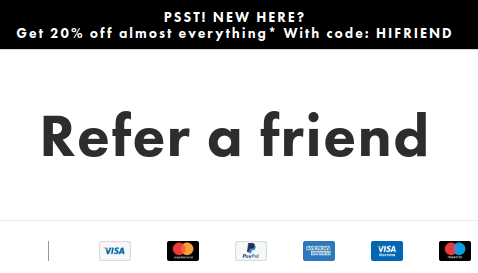
Glossier
Referral Name: Referral Bonus, Just Invite
Glossier is a beauty brand that offers a referral program that rewards both the referrer and the referee. When you refer a friend to Glossier who makes a purchase, you get a 10% commission on their order, and your friend gets a free gift. The referral program is easy to use, and you can share your referral link on social media, email, or text.
Reward Type: 0% commission on the referee’s order for the referrer, free gift for the referee
When your friend makes a purchase from Glossier using your referral link, you will automatically get a 10% commission on their order. Your friend will then
These are just a few examples of the many successful referral programs that are available. If you are looking for a way to grow your ecommerce business, a referral program is a great option. By offering your customers a reward for referring their friends and family, you can encourage them to spread the word about your business and attract new customers.
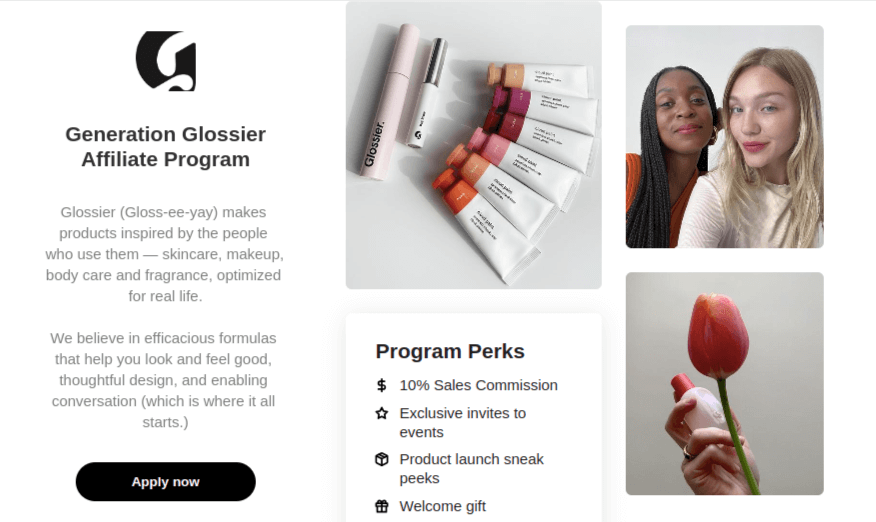
Your customers are already talking about you. Let’s make sure they’re talking to their friends too.
Conclusion
A well-designed referral program can be a powerful tool for growing your business. By rewarding your customers for referring their friends and family, you can tap into their network of potential customers and quickly expand your reach.
The examples in this blog post show how different businesses have successfully implemented referral programs. Some of the key factors that contribute to a successful referral program include:
- Clear and attractive rewards: Your rewards should be something that your customers will actually want. They should also be easy to understand and redeem.
- Simple and easy to use: Your referral program should be easy for your customers to participate in. They should be able to sign up and start referring their friends with just a few clicks.
- Effective marketing: You need to let your customers know about your referral program. You can do this through email marketing, social media, or even in-store signage.
If you’re looking for a way to grow your business, a referral program is a great option. By following the tips in this blog post, you can create a program that will help you attract new customers and boost your sales.
There are a number of different ways to promote a referral program. You can include a call to action in your email marketing campaigns, share your referral program on social media, and offer referral bonuses to employees. You can also make sure your referral program is prominently displayed on your website.
Some good referral program incentives include discounts, free products or services, or entry into a prize draw. The best incentives will vary depending on your business and your target audience.
There are a number of different ways to track the results of your referral program. You can track the number of referrals, the number of new customers, and the amount of revenue generated by referrals. You can also track the cost per acquisition (CPA) of your referral marketing program.
A referral program is a marketing strategy that encourages existing customers to refer their friends and family to your business. When someone refers a new customer who makes a purchase, the original customer receives a reward from the company.
A loyalty program is a marketing strategy that rewards customers for their continued purchases. Loyalty programs typically offer rewards such as points, miles, or cash back.
The main difference between a referral program and a loyalty program is that a referral program rewards customers for referring new customers, while a loyalty program rewards customers for their own purchases.
There are a number of different ways to get started with a referral program. You can use a referral marketing software platform, or you can set up your own program manually.
If you’re using a referral marketing software platform, you’ll need to create a new program and set up the rewards. You’ll also need to integrate the platform with your website or email marketing platform.
If you’re setting up your own program manually, you’ll need to create a landing page or form where customers can enter the email addresses of their friends. You’ll also need to set up a system for tracking referrals and issuing rewards.
Some common mistakes to avoid when setting up a referral program include:
1. Offering too low of a reward.
2. Making it too difficult for customers to refer others.
3. Not promoting the program effectively.
4. Not tracking the results of the program.
By avoiding these mistakes, you can increase the chances of your referral program being successful.
The length of time a referral program should run will vary depending on your business and your goals. If you’re just starting out, you may want to start with a shorter program and see how it performs. Once you’ve had some success, you can then extend the program or make it permanent.
The frequency of your referral emails will also depend on your business and your goals. If you’re sending out too many emails, you’ll risk annoying your customers. However, if you don’t send out enough emails, you’ll risk losing out on potential referrals. A good rule of thumb is to send out a referral email once a month or once every two months.
There are a number of different ways to measure the success of your referral program. You can track the number of referrals, the number of new customers, and the amount of revenue generated by referrals. You can also track the cost per acquisition (CPA) of your referral marketing program.
Here are some tips for making your referral program more successful:
1. Offer a valuable reward. The reward you offer should be something that your customers will actually want.
2. Make it easy for customers to refer others. The process of referring others should be as simple and straightforward as possible.
3. Promote your referral program effectively. Let your customers know about your program through email marketing, social media, and your website.
4. Track the results of your program. This will help you see what’s working and what’s not.
